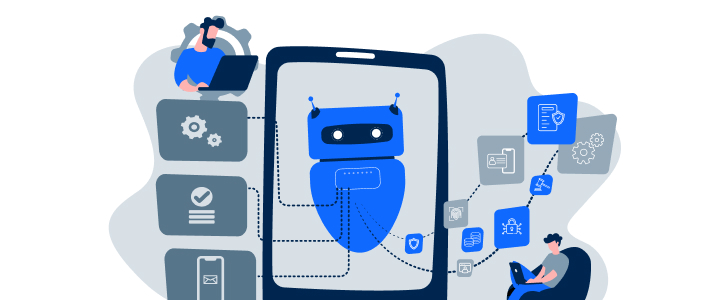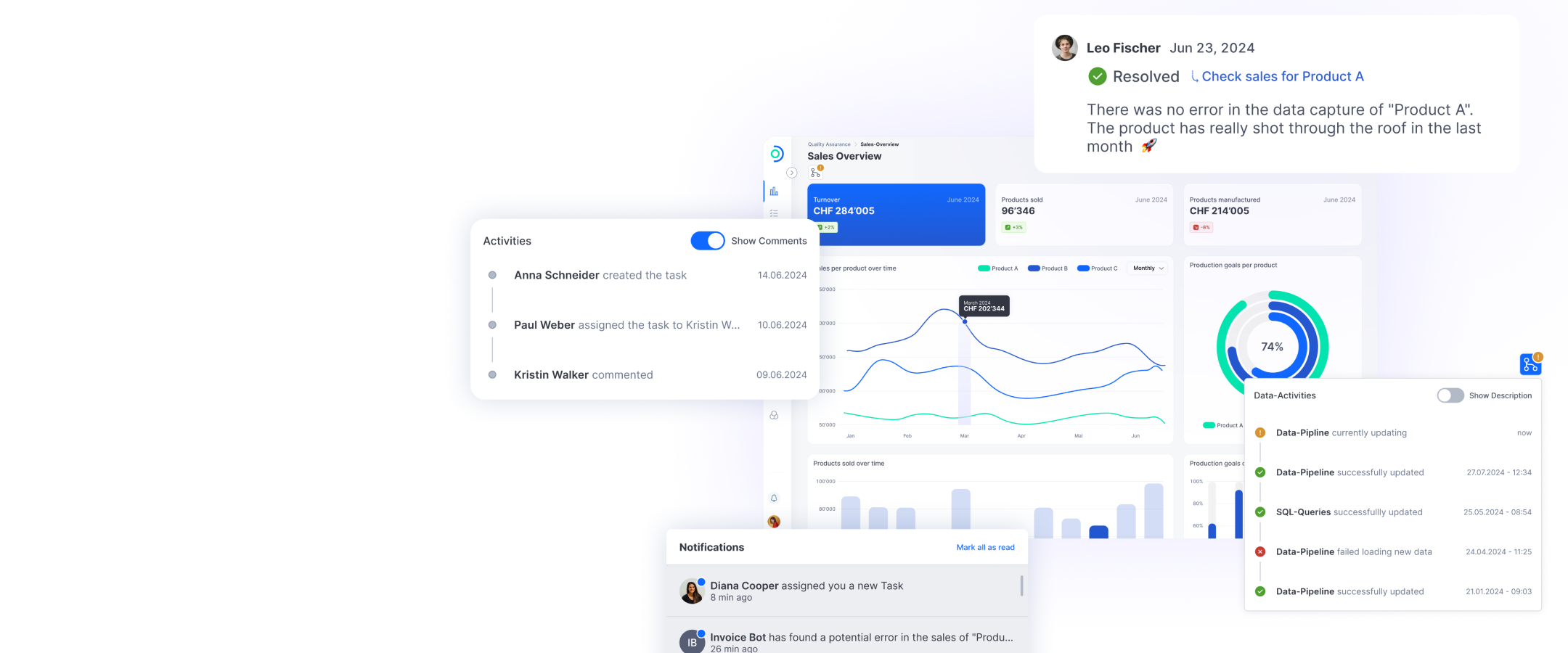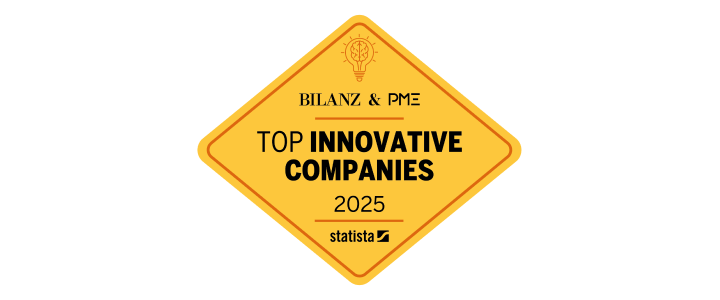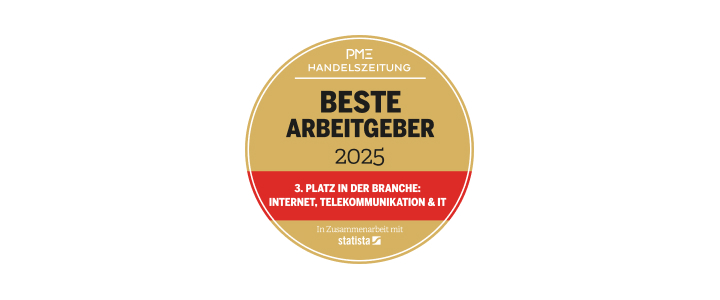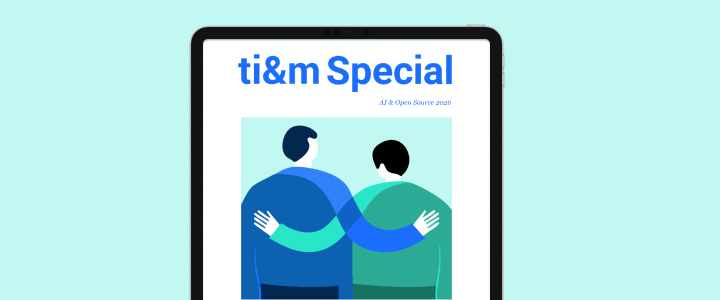IP Unveiled: A Journey Through our Information Society
This fall, ti&m surfer Maxim Mattheeuws is offering three ti&m Academy courses on intellectual property. In this interview, he explains why IP is such an important topic in IT and what participants can look forward to on the course “IP Unveiled: A Journey Through our Information Society”.
What is IP and what is it all about?
IP stands for intellectual property, and it's all about the ownership of immaterial assets. Most people have heard of copyrights, patents, trademarks and trade secrets. These are all types of IP.
Why is IP a relevant topic in IT right now?
Intellectual property has been a hot topic since at least the end of World War II, when German scientists were exfiltrated to the U.S. by the Americans, or to the USSR by the Soviets. Their goal was to take ownership of the inventions and knowledge of these scientists. The rivalry between the Americans and the Soviets continued during the Cold War, epitomized by the race to the moon to assert technological superiority. This required unprecedented computing power because orbital mechanics involving three or more bodies (specifically, a rocket, the Earth, the Moon and the Sun) must be approximated step by step. Thus, the computer industry was born, and each party tried to hide its secret know-how from its opponent. These historical events explain why the U.S. has been so eager to invest in research and development and to protect its intellectual property, resulting in its current dominance.
Nowadays, an important field has opened up. The digitalization of the economy has created a new kind of profession called software development. This is the closest thing to wizardry: whoever conjures the right code at the right time has the world at their feet. However, worldwide international agreements regulate the copying of code and any other kind of creative work. This is where IP comes in. Zooming in on Switzerland, a recent law requires code used by the government to be open source.
So, copying code is regulated. How does open source work?
Basically, whoever writes code owns it, and no one is allowed to copy it. You can only copy the code if the author explicitly permits it. This permission takes the form of a license. My course on software licenses covers this topic and discusses the different types of permissions and their implications.
What are your customers' biggest uncertainties?
The most frequent question is: can we use a particular software component? And the answer is one you would typically get from a lawyer (which I am not!): it depends. First, it is important to keep in mind that the term "open source" is actually a technical term; it means that we have access to the source code. However, on a legal basis, if there is no license, then copying the code is not allowed.
The typical question that follows is: what about code from a Q&A site, such as stack overflow? Here, the IP is governed by its terms of service, which states that subscriber-generated content is CC-BY-SA. So, there is indeed a license that needs to be adhered to. And how to do that? You will learn all about it in my course on software licenses.
How do you address potential IP issues in your projects?
Our tools automatically scan the dependencies of a software project. They are needed not only to determine the licenses, which in turn may dictate how we license the resulting software, but also to periodically check for vulnerabilities. Usually, the focus is more on the latter. Our tools are necessary but not sufficient to achieve compliance. When we have customers who explicitly want to ensure that no copyrights are infringed, I thoroughly inspect the software components and their licenses and provide the project with concrete guidelines.
This means that copyright and software are inextricably linked. What about the other types of IP?
IT is particularly interesting from an IP perspective because it really touches on all types of IP, copyright being one of them. With the rise of the Internet, software no longer needs to be distributed, and thus can more easily remain a trade secret, which is also a type of IP. Furthermore, names for software must be chosen carefully, as they can be trademarked. For example, we have trademarked our Channel Suite, Security Suite and Onboarding Suite products. A tricky form of IP is patents. The legal system was designed by lawyers, not by engineers: software cannot be patented, but processes can. But what do you call a program that runs? A process!
IP is also challenging in the GenAI sphere. How can companies and especially creative agencies deal with it?
This is a hotly debated question. With the advent of generative artificial intelligence, the issue has become even more convoluted: not only are the models themselves intellectual property, but so are the data on which they are trained and the content they generate. In my view, we could solve this issue by requiring that a royalty be paid to the authors of the training data every time the content generated by the AI is used. But it gets even messier. Sometimes, it is not copyrighted text, images or music AIs that are used for training, but personal data. I will address this topic in a future course.
Do you have any final words to say about your course on intellectual property?
I actually teach not one, but a series of courses on intellectual property. The first course is about the basics of IP. It gives a broad overview and a deep understanding of IP, where it came from, and how it has consolidated into what it is today. This general knowledge then makes it possible to tackle practical applications, which is the focus of the second course on software licenses. A third course coming up soon links IP to innovation, AI and privacy, and discusses current challenges we face as a company, as well as ways to address them.

